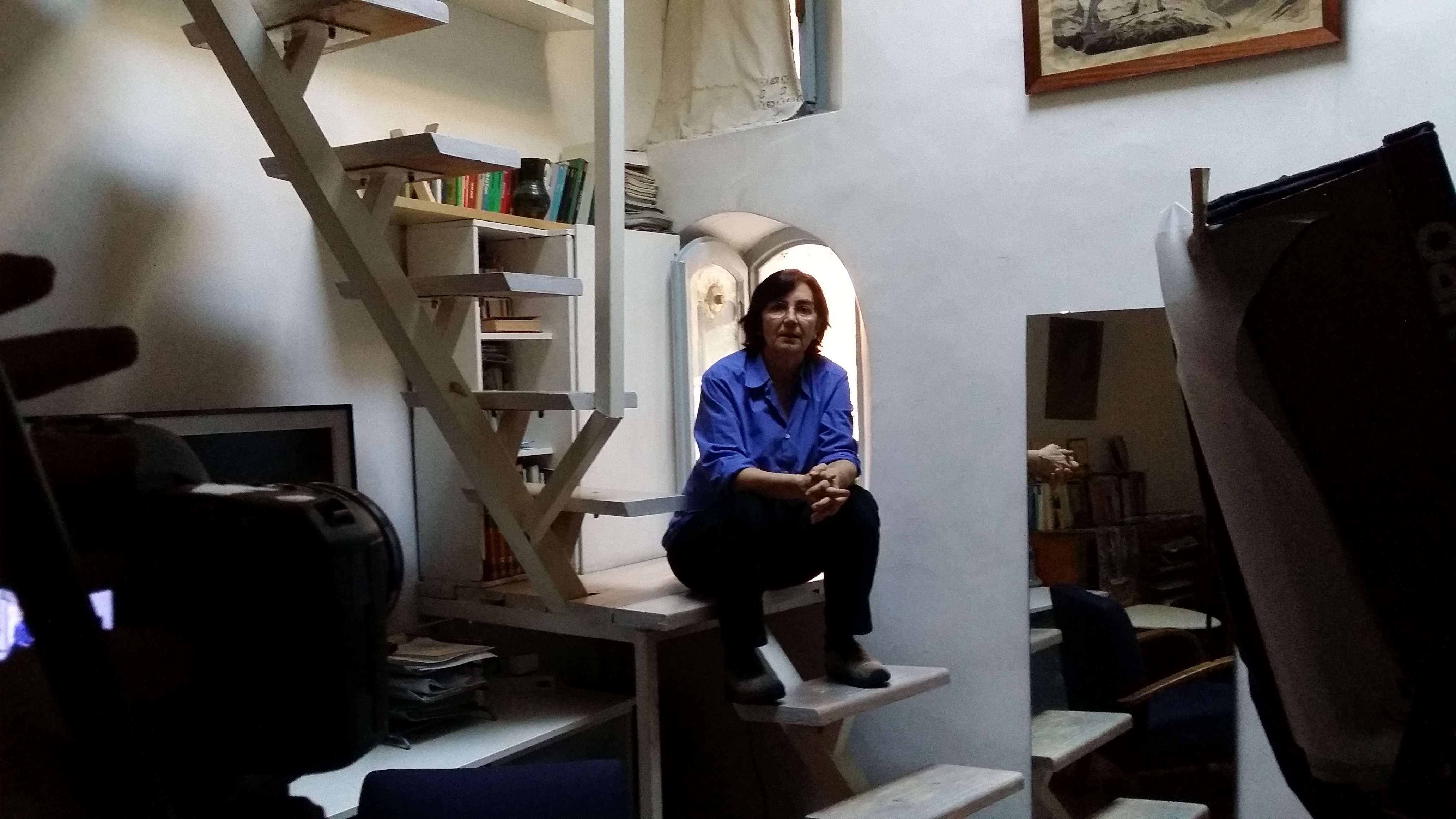Valeria Viganò: "La maternità è stata anche un giogo"

La famiglia d'origine start 00:05:59end 00:09:24 Valeria Viganò parla della sua famiglia d'origine, della sua infanzia e dei ruoli sociali presenti in quegli anni.trascrizione VALERIA VIGANO': "Certamente un altro elemento che ha influenzato il fatto di non volere dei figli e di non sentirne la necessità era l'estrema indipendenza che io associavo alla mia vita. Io sono figlia unica, i miei genitori sono stati, come tutti i genitori, bravi e cattivi nello stesso tempo; certamente ci sono dei nuclei familiari che non sono un grande esempio, diciamo che il mio non era un grande esempio. Però avendo fin da piccola elaborato questo fortissimo bisogno di libertà, di indipendenza, di non dover dipendere e di poter fare, di non pormi limiti io sono nata nel 55, allora le bambine erano molto limitate, il genere femminile era pieno di vincoli: "non fare questo", "non fare quell'altro", "questo non puoi farlo", "questo lo fanno i maschi", e io non ne volevo avere. Non ne volevo avere. E forse questa non voglia di vincolo è stata inglobata nel non avere il vincolo massimo che è un figlio. Io ho avuto amiche che hanno avuto figli molto presto e la loro vita è cambiata in maniera radicale. Molte persone della loro vita, anzi quasi tutte, hanno avuto dei figli, relazioni, compagni, anche matrimoni, e io ho visto quanto la loro vita cambiava, tanto.
Noi siamo una famiglia molto esigua, non abbiamo tante parentele, io stessa non ne ho più. Io ho avuto due zie su tre che non hanno avuto figli: una sposata, che non ne poteva avere; l'altra con una storia molto più drammatica e anche lei non ne ha avuti. Quindi erano donne molto più indipendenti e anche questo era un modello per me da seguire: era possibile, negli anni Cinquanta, negli anni Sessanta, negli anni Settanta, essere donne e non essere madri. Ed erano persone che stimavo molto, che amavo molto; non ho mai sentito una sorta di reprimenda da parte dell'esterno per il fatto che loro non avevano figli. Mia zia sposata certamente soffriva di più, l'altra meno."
English:
VALERIA VIGANO': "Another element that influenced the fact of not wanting children, or not feeling this need, was the total independence which I associated to my life.
I'm an only child and my parents have been... like all the other parents, good and bad at the same time. Certainly, some households are not a great example, and mine was not a great example.
Since I was a child, I felt this strong need of freedom, of independence, of not depending on anything and of being able to do something, setting myself no limits... I was born in 1955, and at that time girls were very limited, the female gender was full of constrains.
"Don't do this", don't do that", "you can't do it", "boys do this", and I didn't want any. Maybe this desire of having no constraints included the maximum constraint represented by a child.
I have had friends who had children very early and their life has radically changed. Many people of their life, almost all, have had children, they had partners, also marriages, and I have seen how much their life changed.
We are a very small family, we don't have many relatives, I myself no longer have any.
I had two aunts out of three who didn't have children, one married, who couldn't have children, the other one with a much more dramatic background, and she didn't have children either. Therefore, they were much more independent and that, for me, was also a model to follow, because it was possible in the 50s, 60s and 70s to be women and not be mothers.
And I thought very highly of them, and I have never heard a sort of reproach from the outside because they didn't have children. My married aunt suffered more, of course, instead the other less."soggetto famiglia d'origine anni Cinquanta zia giudizio sociale libertà
